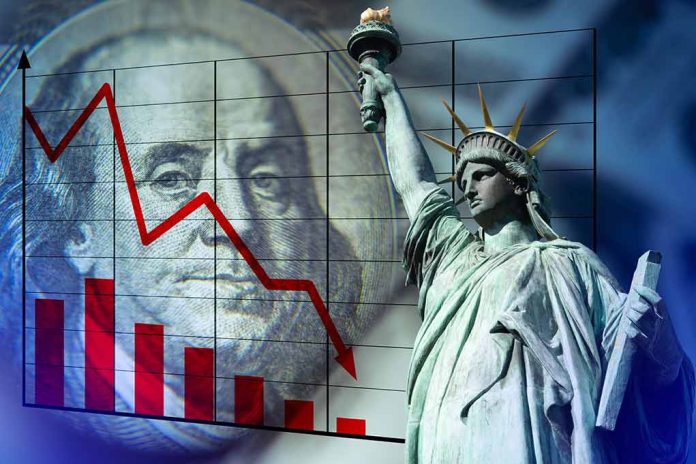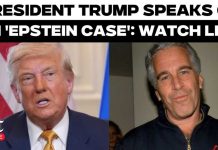
Warren Buffett, legendary 94-year-old CEO of Berkshire Hathaway, shocked the business world by announcing his retirement after 55 years at the helm of one of the world’s most valuable companies, triggering immediate speculation about the future of his $1 trillion investment empire.
Key Takeaways
- Warren Buffett will step down as CEO of Berkshire Hathaway at the end of 2025 after transforming it into a $1 trillion conglomerate over 55 years.
- Greg Abel, currently CEO of Berkshire Hathaway Energy, will succeed Buffett as chief executive, while Buffett’s son, Howard, is expected to become non-executive chairman.
- Despite retiring, Buffett plans to retain his $160 billion in shares and remain involved, expressing confidence that the company will perform better under Abel’s management.
- The announcement was made during the annual shareholder meeting in Omaha, Nebraska, where Buffett received a standing ovation for his service.
- Buffett criticized the current global trade war and tariffs without directly mentioning President Trump, emphasizing that “trade should not be a weapon.”
The Oracle of Omaha Steps Down
During Berkshire Hathaway’s annual shareholder meeting in Omaha, Warren Buffett delivered the bombshell announcement that he would relinquish his position as CEO at the end of the year. Only his children, Howard and Susie, were aware of the decision beforehand, while the rest of the board first learned of it during the announcement. The timing of this major transition comes as Buffett, now 94, has been carefully preparing for succession over several years, having identified Greg Abel as his successor since 2021.
“Tomorrow, we’re having a board meeting of Berkshire, and we have 11 directors. Two of the directors, who are my children, Howie and Susie, know what I’m going to talk about there. The rest of them, this will come as news to you, but I think the time has arrived where Greg should become the chief executive officer of the company at year’s end,” said Warren Buffett, CEO of Berkshire Hathaway.
#BREAKING #USA JUST IN: Warren Buffett to Step Down as Berkshire Hathaway CEO by Year-End, Greg Abel to Succeed.
American billionaire investor Warren Buffett announced he will step down as CEO of Berkshire Hathaway by the end of 2025.
Buffett, 94, who has led the conglomerate… pic.twitter.com/ILWooGPF2e
— The National Independent (@NationalIndNews) May 3, 2025
Leadership Transition Plan
Greg Abel, who currently serves as CEO of Berkshire Hathaway Energy, will take over the corporate reins after joining the company in 2000. Abel began with Berkshire Hathaway Energy in 1992, before Berkshire acquired it. Buffett’s son, Howard, is expected to become non-executive chairman, ensuring family continuity in the massive conglomerate. Despite Abel being based in Des Moines, Iowa, the company headquarters will remain in Omaha, maintaining the firm’s historic roots.
“The directors agree that if something were to happen to me tonight, it would be Greg who’d take over tomorrow morning,” said Warren Buffett, CEO of Berkshire Hathaway.
This succession plan has been years in the making, with Buffett consistently signaling his confidence in Abel’s leadership abilities. The announcement was met with a standing ovation from shareholders, acknowledging Buffett’s extraordinary legacy and the careful manner in which he has orchestrated this transition. Abel now faces the daunting task of replacing one of the most successful investors in history, inheriting responsibility for a diverse portfolio that includes energy, transportation, insurance, and real estate businesses.
Buffett’s Future Role and Financial Stake
In a move that should reassure investors, Buffett confirmed he plans to retain his massive $160 billion stake in Berkshire Hathaway shares. This decision signals his enduring faith in the company’s prospects and stability during the leadership transition. Buffett indicated he will continue to be involved with the company in an advisory capacity, though he emphasized that “the final word would be what Greg said.” His shares are slated to be donated after his death, by his philanthropic commitments.
“I would add this, the decision to keep every share is an economic decision because I think the prospects of Berkshire will be better under Greg’s management than mine,” said Warren Buffett, CEO of Berkshire Hathaway.
This remarkable expression of confidence in his successor comes after Buffett and his late partner Charlie Munger transformed Berkshire from a struggling textile business in 1965 into one of the world’s most valuable companies, worth over $1 trillion. Their investment philosophy, focused on businesses with strong fundamentals and long-term growth potential, reshaped American investing culture and created extraordinary wealth for shareholders who followed their lead over the decades.
Buffett’s Comments on Trade Policy
During the shareholder meeting, Buffett took a position on current American trade policy, stating that “trade should not be a weapon.” Without directly criticizing President Trump, Buffett expressed concerns about the ongoing global trade war and tariffs that have characterized recent American policy. His remarks reflect his longstanding belief in the principles of free trade and economic cooperation that have shaped his investment strategies over the decades.
“Should be looking to trade with the rest of the world. We should do what we do best, and they should do what they do best,” said Warren Buffett, CEO of Berkshire Hathaway.
For Berkshire Hathaway’s legion of devoted shareholders, this transition marks the end of an unprecedented era in American business. While the company’s massive size and diverse holdings provide substantial stability, the investment community will be watching closely to see if Abel can maintain the disciplined approach to capital allocation that made Berkshire Hathaway synonymous with Warren Buffett and his extraordinary 55-year legacy of value creation.













